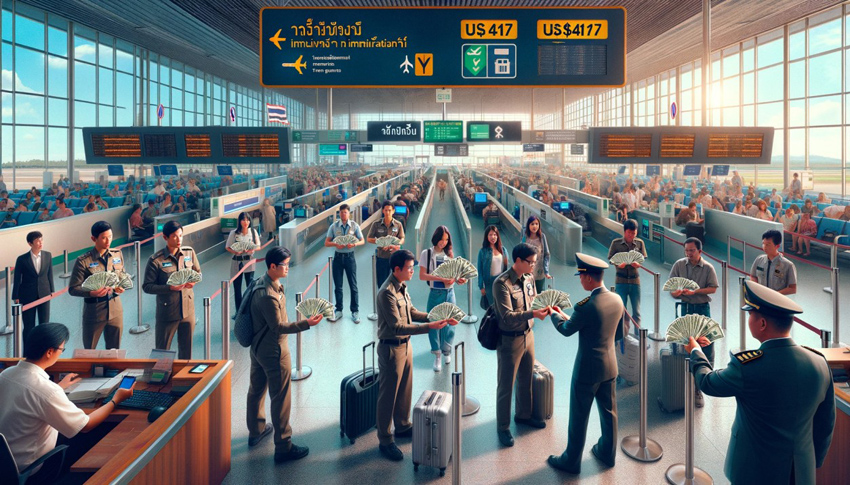Friday, February 23, 2024

In a new mandate affecting international tourists, individuals seeking entry into Thailand are now required to carry a minimum of 300 baht in cash. This directive, although not explicitly detailed by Thailand’s Immigration authorities, has been clarified by the Indonesian Embassy in Bangkok through a recent announcement.
The embassy laid down the new travel policy that visitors should have approximately $8.32 to meet this requirement.
Non-compliance with this regulation could lead to a breach of the Immigration Act B.E. 2522 (1979), granting immigration officers the authority to deny entry to tourists who fail to meet this cash threshold. While this rule is universally applicable to all tourists, its enforcement will be selective, relying on random checks by immigration officials. Nonetheless, tourists are strongly advised to adhere to this policy to guarantee their admittance into Thailand.
Thailand, a country celebrated for its exquisite beaches and accessibility, remains a popular destination among Indonesian travelers, particularly due to the visa exemption and reasonable travel costs. However, the journey to Thailand presents its challenges, as highlighted by the Indonesian Embassy in Bangkok, which has received numerous complaints from Indonesians denied entry. These denials often stem from inadequate travel documentation during random inspections by Thailand’s immigration officers.
The embassy outlines the prerequisites for entry into Thailand, which include possessing a valid passport with at least six months until expiration, a return ticket, and confirmed accommodation arrangements. Additionally, tourists must demonstrate their financial capacity to support their stay by carrying the stipulated amount of cash. This new financial requirement underscores Thailand’s commitment to ensuring that visitors can sustain themselves during their visit, thereby potentially influencing the dynamics of airline tourism.
This financial mandate could reshape tourist behaviors and preparation strategies, emphasizing the need for financial readiness as a critical component of travel planning. For airlines and the broader tourism sector, this could translate into a more financially prepared traveler demographic, potentially reducing the instances of tourists facing entry denials due to financial inadequacy. The introduction of this requirement is poised to impact not only the influx of tourists but also the operational considerations of airlines, as they may need to inform and prepare passengers for these financial prerequisites ahead of their travel to Thailand.
Monday, April 29, 2024
Sunday, April 28, 2024
Monday, April 29, 2024